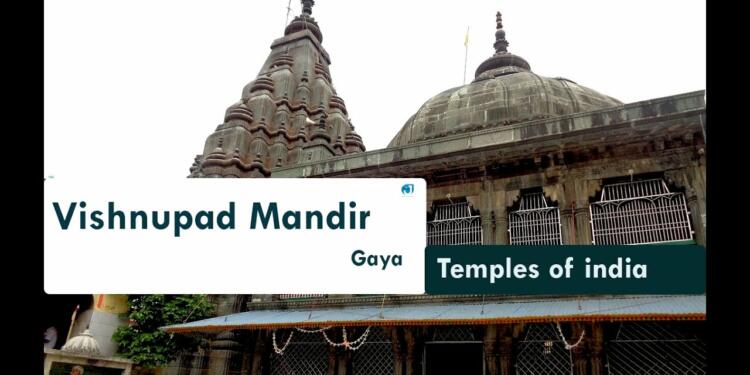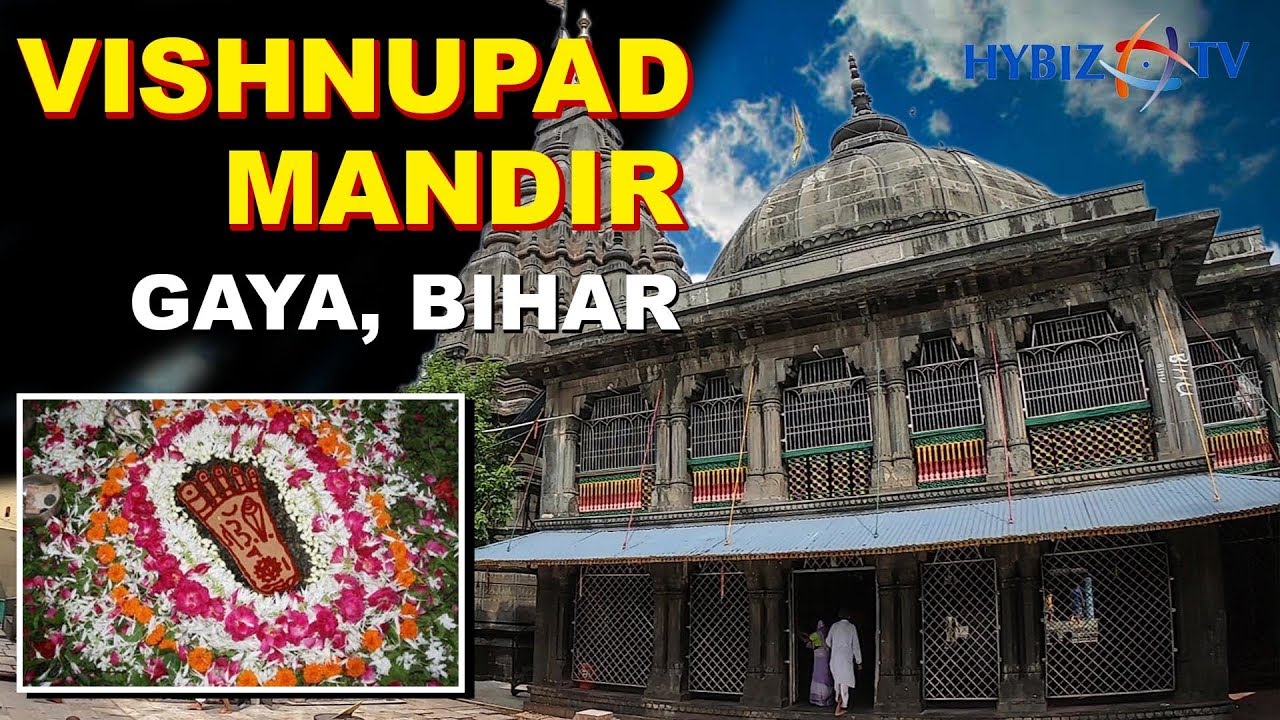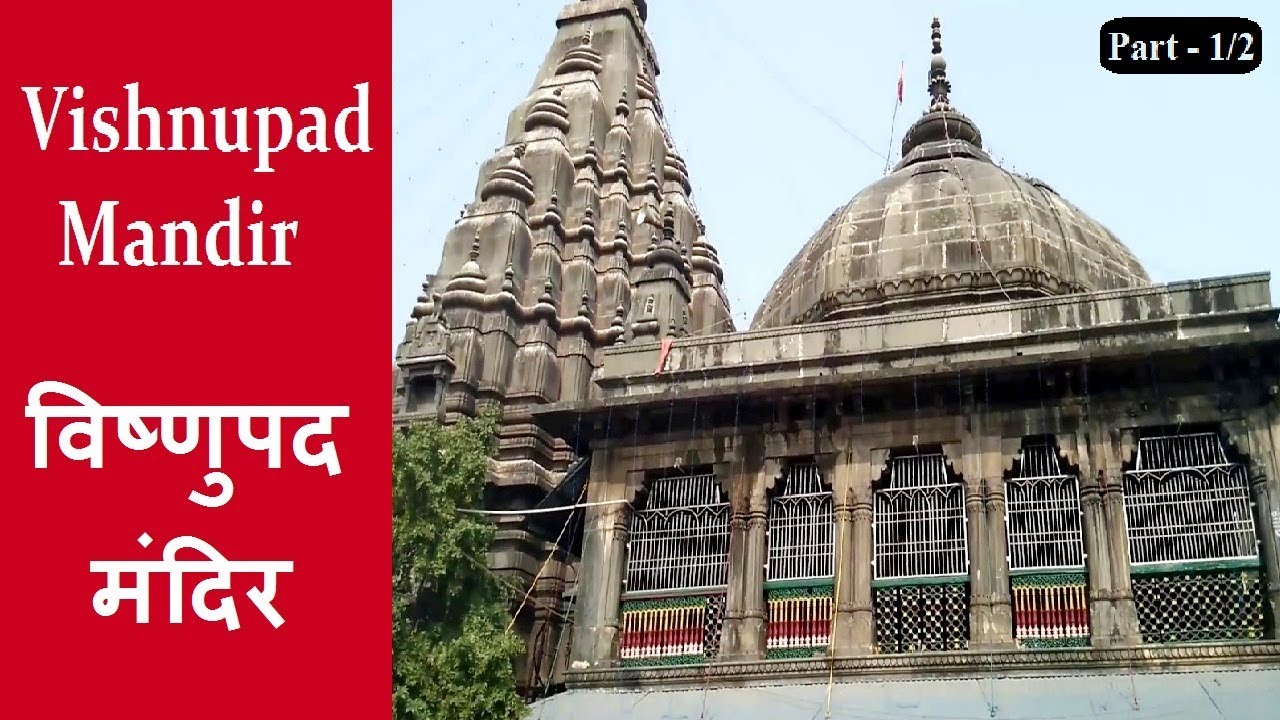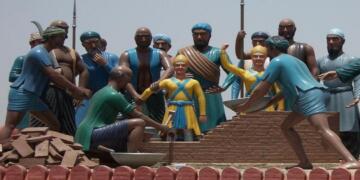Gaya Vishnupad Temple – Guide
Vishnupad Temple is located in the Gaya district of Bihar, which is the famous for doing Pind Daan of the ancestors. This temple is located near the river phalgu. Due to the presence footprint of Lord Vishnu in the temple, it is called Vishnupad temple. There is description of this temple in Ramayana also. Being the base of religion, this temple is also known as Dharamshila. It is believed that seeing the feet of Lord Vishnu situated in this temple after offering prayers to the ancestors gives relief from all sorrows.
History of Gaya Vishnupad Temple
Gaya Vishnupad Temple was established in 1787 AD. This temple was established by Queen Ahilyabai of Indore by the name Vishnupad temple by calling the famous architects of Jaipur. In Garuda Purana, Gaya is considered the best pilgrimage place in the world for the salvation of ancestors.
A flight of 1000 stone steps leads to the top of the Brahmajuni hill, 1 km southwest of the Vishnupad temple. Devotee visit the top of the Brahmajuni hill to have a view of the temple from above. There are many small temples near this temple. In 629-634 CE, the Chinese traveller Wen Tsang described Gaya as a famous Hindu city. He told that there was a small population here.
Also Read: Understanding 10 Difference Between Provision and Reserve
Best time to visit this temple
Pitrapaksha Mela is the famous festival celebrated in Gaya Vishnupad Temple which is celebrated in the month of July or August. During this festival people come here and offer pitra daan to their ancestors.
Gaya Vishnupad Temple Timings
Gaya Vishnupad Temple opens at 6:30 AM in the morning and close at 7:30 PM in the evening. Morning aarti is performed at 7:00 PM in the morning and evening aarti performed at 6:30 PM in the evening.
| Saturday | 06:30 AM to 07:30 PM, Aarti: 07:00 AM & 06:30 PM |
| Sunday | 06:30 AM to 07:30 PM, Aarti: 07:00 AM & 06:30 PM |
| Monday | 06:30 AM to 07:30 PM, Aarti: 07:00 AM & 06:30 PM |
| Tuesday | 06:30 AM to 07:30 PM, Aarti: 07:00 AM & 06:30 PM |
| Wednesday | 06:30 AM to 07:30 PM, Aarti: 07:00 AM & 06:30 PM |
| Thursday | 06:30 AM to 07:30 PM, Aarti: 07:00 AM & 06:30 PM |
| Friday | 06:30 AM to 07:30 PM, Aarti: 07:00 AM & 06:30 PM |
Also Read: 10 Dry Fruits That Are Good for Strong Bones: Nourishing Your Bones
Places to visit near this temple
Mahabodhi Temple
This temple is dedicated to Buddha and this temple is located in Bodh Gaya which is 96 km away from the Vishnupad mandir.
Sankata maakan Mandir
This temple is dedicated to lord Hanuman. This temple is located at a distance of about few kms away from the Vishnupad mandir.
Mangala Gauri Temple
This temple is dedicated to maa Gauri one of the form of maa sati. This temple by located at a distance of about few kms away from the main temple.
Phalgu River Ghat
This is main tourist attraction near this temple. This place is located just near the temple.
International Meditation Centre
This place is good for doing meditation. This place is mainly famous among the international tourists. This place is located at a distance of about few kms away from the Vishnupad temple.
Also Read: Airavatesvara Temple Darasuram, Timings, History, Travel Guide and How to reach
How to reach Gaya Vishnupad Temple
By Air- The nearest airport from Vishnupad Temple is Gaya airport which is located at a distance of about 7 km away from the temple. From here you can easily reach this temple by using local transport services or taxi.
By Train- The nearest railway station from Vishnupad Temple is Gaya railway station which is located at a distance of about 3 km away from the temple. From here you can easily reach this temple by using local transport services or taxi.
By Road- Roads to this temple are well connected with the other cities of the country but to reach this temple first you have to reach Gaya bust Stop which is just 2 km away from the temple. From here you can easily reach this temple by using local transport services or taxi or also by your own vehicle.
Subscribe our TFI Dharma YouTube channel to watch Devotional videos because we are here to serve Sanatana Dhrama: TFIDHARMA

























